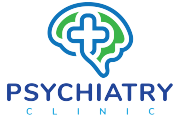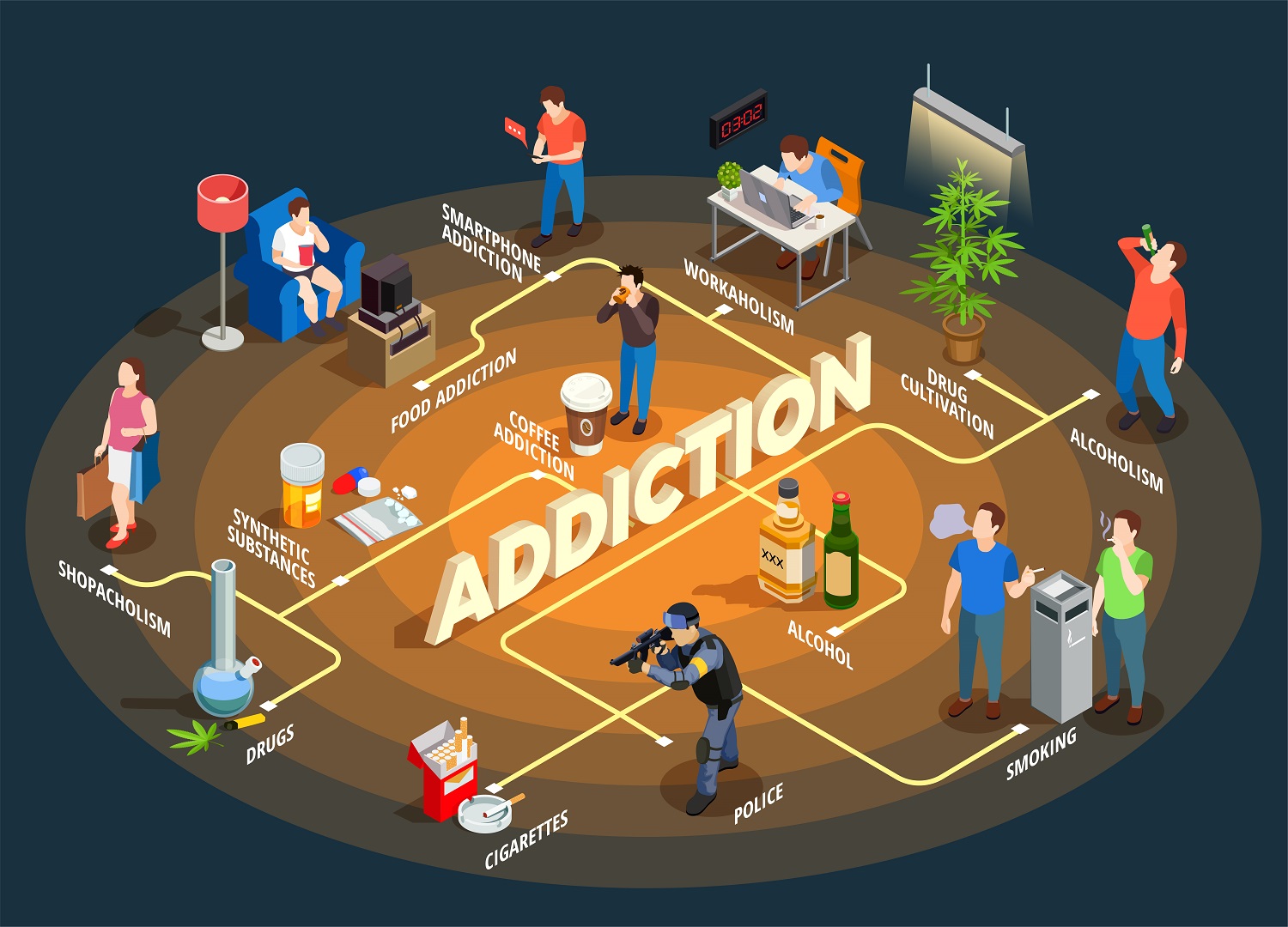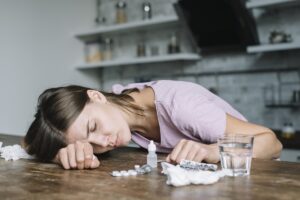Drug Addiction: Why, How, and What’s Possible to Do About It?
Introduction
Drug addiction is a widespread problem and, unfortunately, it’s getting worse. But there are treatment options available that can be very effective. Let’s look at the facts about this problem. Explore what you can do if someone in your life has this issue.
What do you mean by drug addiction?
It is a complex disorder that involves many factors. These include your genes, the environment you live in, and how you cope with stress. Surprisingly, it is similar to other chronic diseases—such as diabetes, asthma, or heart disease—in that it can be managed.
We also call it a brain disease. It causes compulsive drug seeking and uses despite harmful consequences (such as relationship problems).
This is a chronic relapsing brain disease. It results from long-term changes to your brain’s structure and function. These changes can be triggered by repeated exposure to drugs like tobacco or cocaine. Or they may occur without an initial drug use incident through genetic predisposition. Sometimes, the exact reason is not known.
What is the main purpose of addiction?
Many people use drugs for the same reasons we drink coffee or eat chocolate: to escape from reality. This can be the stress of work, the boredom that comes with being trapped in an office all day. Or just wanting a brief escape from life as it currently is, drugs can be a way out—for good or bad.
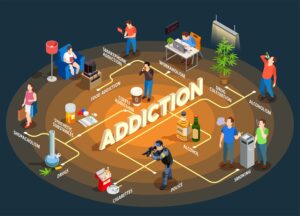
A lot of people also turn to drugs because they’re dealing with some stressors. These can be emotional pain and trauma they’ve experienced in their pasts. This includes
- Childhood traumas like sexual abuse and neglect
- Adult traumas such as divorce, and abuse by family members or friends
- Physical injuries sustained during military service
- Other similar events may have affected them deeply.
Sometimes, people don’t realize at first how much damage was done. Later on down the road, those wounds open up again. May be due to something else happening (e.g., your spouse cheating on you).
Drugs are another way for us humans to cope with these kinds of issues because there aren’t many other ways available besides talking about our problems with others who care about us–which can be difficult since not everyone knows how.
What is the most addictive drug?
According to a study done by researchers at the University of Kentucky, heroin is the most addictive drug available. After heroin, cocaine, alcohol, nicotine, and methamphetamine come close behind for their high addictive potential. Opiates rank as the fourth most addictive substance with prescription drugs such as painkillers and anti-anxiety medications coming next in line.
As you can see from these statistics, there are many different types of drugs that can be considered highly addictive when consumed in large amounts over time. No matter how many times you use these substances though it’s important not to give up hope on yourself or those around you who might be struggling with these problems!
Not All Addictions Are Drug Related
The word “addiction” has become synonymous with drug and alcohol abuse, but the term can refer to any compulsive behavior that one cannot stop. Being addicted is simply a matter of brain chemistry rather than morality or willpower, so it may seem like you’re stuck with your addictive behaviors for life. However, there are ways to break free from it and live a healthy life once again.
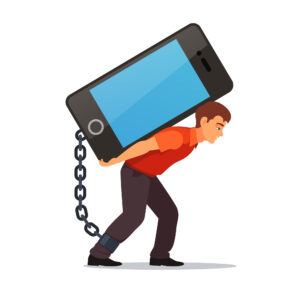
In recent years, researchers have started looking at other types besides substance abuse and gambling (which have long been known). Studies show that people can also become obsessed with sex and food—and even the internet! The basic idea behind all these problems is that a person gets hooked on something because it produces pleasurable feelings in the brain’s “reward system.” This same reward system is at work with neurotransmitters: Taking them floods your brain’s pleasure centers with dopamine until you crave more drug use just to feel normal again.
How The Drugs Influence Our Behavior
- Lack of Self Control
- The lack of control over drug usage is one of the most essential features in maintaining it. The individual feels helpless and fails to limit the use of drugs.
- Most of the time is spent obtaining the drug.
- The individual does face an urge or craving for the drug. This desire to obtain the drug is so strong that the individual fails to think of anything else.
- Risky Use
- The risky use of drugs involves taking drugs where it is physically hazardous such as before driving or keep using the drug even if it is causing physical harm such as repeatedly injecting the drug that is resulting in bruises.
- Despite the hazardous effects the individual keep on using it and failed to refrain from using the drug.
- Impairment in Social Functioning
- The behavioral consequences of drugs are observable in the form of mood changes, and problems in thinking, perceiving, attention and judgment.
- Disturbances in social functioning are also apparent in the form of repeated relationship problems. The individuals’ work performance and hobbies are also affected. For example, several absences from schools or colleges in the case of teens, and being late to the office in case of adults are reported.
- Increased Tolerance and Withdrawal Effects
- the increased use of drugs makes the individual’s body develop more tolerance to the drug. Hence, the initial dose that was previously sufficient, fails to satisfy the urge with time.
- Individuals experience withdrawal effects when the body is deprived of drugs or stops taking drugs. The increased dependence on drugs results in these withdrawal effects. Common withdrawal symptoms can include body aches, muscle twitching, sweats, vomiting, diarrhea, and insomnia.
What are the most common drugs?
You might be wondering what types of substances people tend to abuse. The answer is a lot. Here are the most common drugs that can lead to situation:
- Cannabis (also known as hash or weed)
- Alcohol
- Caffeine (found in tea, coffee, and energy drinks)
- Hydrocarbon inhalants (such as those found in glues, paints, cigarette lighter fluid, nail polish, etc.)
- Hallucinogens (e.g. MDMA or ecstasy)
- Stimulants(e.g. cocaine, ice, or crystal methamphetamine))
- Sedatives or Anxiolytics (such as sleep-inducing and anti-anxiety medications)
- Tobacco (found in cigarettes)
- Opioids (such as heroin)
What happens to your brain when people are addicted?
Various research touched on the fact that drugs affect the way your brain works and how it processes information. But what exactly does that mean?
The human body is like an intricate machine with many parts working together to keep everything running smoothly. The brain is one of those parts—it’s responsible for receiving input from other organs and sensory systems (like sight or sound), sending signals out to other organs and systems via neurotransmitters, and regulating responses based on the amount of input received by those sensory systems.
Drugs interact with these processes in different ways depending on their chemical makeup. For example, some drugs block serotonin receptors in the brain, which causes people who take them to feel good; others increase dopamine levels in certain regions of the reward pathway (a part of our brains used in motivation), which makes us want more drugs because they make us feel good; opiates such as heroin act on opioid receptors throughout our bodies so we crave them even though they’re dangerous due to overdose risks etcetera…
Are some people more prone to addiction than others?
Are some people more at risk of it than others? What factors lead to an individual’s likelihood of developing this severe disorder?
- Studies have shown that around 50% of a person’s vulnerability to substance use disorders is hereditary, meaning that genes play a role in whether or not you will develop an addiction. The risk for alcoholism can be up to 90% genetic. The majority of research on the genetics of drug dependence has focused on one specific gene: called GABRA2 (gamma-aminobutyric acid receptor subunit alpha-2). This gene codes for a protein that helps regulate dopamine levels in the brain and may be associated with impulsive behavior associated with substance use disorders. Some studies suggest that this gene may also play a role in alcoholism risk among Native Americans and African Americans as well as smoking initiation among children who have ADHD (attention deficit hyperactivity disorder).
- Family history and environment. A family history of substance abuse increases one’s chance of becoming addicted by anywhere from two to four times their typical risk compared to people without such an ancestry. If your parents abused drugs or alcohol when you were growing up—or if they showed signs of other addictions like gambling—that increases your chances even further! Additionally, living in certain places or environments makes it more likely that someone will develop these due to lack of opportunity/resources (ease of access), stressors related specifically towards drug/alcohol abuse (peer pressure/friends), lack of knowledge about how dangerous these substances can be when used inappropriately etcetera…
How does drug addiction affect families and loved ones?
The effects on families and loved ones can be far-reaching, affecting everything from personal finances to mental health. Family members may feel angry, stressed, and helpless. They may experience feelings of guilt and shame over their inability to help the person they love, especially if they’ve tried many different ways to help them get help with this problem.
Family members are also at risk of developing depression or anxiety as they cope with such a difficult situation in their lives. The financial problems that arise because of drug use can be devastating for everyone involved: addicts often lose jobs, while those who care about them might have to take on multiple part-time jobs just to cover living expenses.
The negative impact on family relationships is another major concern: many people who are addicted to drugs find themselves unable to form healthy relationships because of their behavior when high or intoxicated (for example, being disrespectful or physically abusive). As a result, others may avoid spending time with them altogether which can lead these individuals to feel socially isolated; this only worsens the cycle as isolation makes it more difficult for someone struggling with an issue like substance abuse disorder (SUD)
How do I know if I’m addicted?
If you’ve answered yes to any of the following questions, there’s a good chance that you are addicted to drugs.
- Do you have trouble controlling your use of alcohol or other things?
- Do you spend a lot of time thinking about using alcohol or other drugs (e.g., when and where to get them, how much money can be spent)?
- Do people tell you that they think your drug use is out of control?
What does the research say about rehab and other treatment options?
As with most things, the effectiveness of treatment depends on the type of drug used. In general, behavioral therapies and medications are the most effective treatments for addiction. The best results are achieved when family support is involved in treatment and when people who use drugs take responsibility for their recovery process (for example, by attending meetings).
It is important to note that no one method has been proven to be a magic bullet for curing every case. The individuals respond differently to different approaches. But research shows that treatment is more effective than no treatment at all.
What is detoxification?
Detoxification is the process of removing an addictive substance from your body. The most common way to do this is through medication, but it can also be done with other methods such as exercise and acupuncture. The most important thing about detox is that you avoid doing it alone, as it can be dangerous if done improperly:
- Make sure you are under the supervision of a doctor or nurse during detoxification. They will monitor your progress, make sure you’re taking any necessary medications and provide emergency care if needed. Detoxing on your own can lead to serious health complications like seizures, heart attack, or stroke which could result in death!
- Some people opt for hospital-based detox programs because they offer more support than home-based ones do (such as having access to trained medical professionals). Other times people choose outpatient services because they’re worried about how much money will cost them if they go into treatment at one place instead another one nearby their home address where there may not yet be anywhere else available nearby – but both types offer similar levels of care when done properly while still being effective enough that patients don’t need to worry too much about getting better soon enough because right now there isn’t anything else better out there yet anyway!
Role of Psychotherapy
Psychotherapy is a treatment that helps people understand and manage their emotions, thoughts, and behaviors. It can help people change their behavior by providing the opportunity to practice new ways of thinking, feeling, and behaving.
Psychotherapy can be done individually or in a group setting.
How does psychotherapy help with the dependence on drugs?
According to a study, psychotherapy helps in the recovery process for drug addicts. How?
- It helps you understand your addiction and its underlying causes.
- It helps you understand the triggers that make you take drugs.
- It helps you understand the consequences, which in turn can help stop it from happening again.
Cue exposure Technique
Cue exposure is a cognitive behavioral therapy technique that helps people recognize and avoid triggers that cause them to use drugs. It’s often used in conjunction with other treatments, such as medication and counseling.
Cue exposure can be helpful for people addicted to alcohol, nicotine, or cocaine.
Relapse Prevention
Relapse prevention is a crucial part of recovery. It’s the process of preparing for a relapse before it happens so that you can be ready to handle it when it does.
As with any skill, relapse prevention takes practice and patience to master. The key is to think about what situations trigger your cravings (whether they’re related to drugs or not) before they happen so that you’re prepared for them when they do arrive.
Relapses are inevitable; nobody gets through addiction without them—but they don’t have to be permanent setbacks! Your family and friends can help by providing emotional support during this time and reminding you that everyone has relapsed at some point during their recovery process. You should also take stock of what caused your relapse and try not to repeat those behaviors or situations if possible–for example, avoid spending too much time around people who use drugs as well as places where drug use would be likely (like parties).
Cognitive Behavior Therapy
Cognitive-behavioral therapy (CBT) is a form of psychotherapy that focuses on the relationship between thoughts, feelings, and behaviors. It helps people understand how their feelings influence their thoughts, which in turn affects behavior. CBT can help people identify distorted thoughts about themselves or others that lead to dangerous behaviors like drug abuse.
Motivational enhancement therapy
Motivational enhancement therapy (MET) is another type of psychotherapy used to treat these disorders. The goal is to help patients build motivation for change based on their strengths and values. It doesn’t focus solely on the negative aspects of continued addiction. A therapist may also use motivational interviewing techniques during MET sessions with clients. Especially those who are ambivalent about making changes in their lifestyles. This is because these strategies encourage patients to be more active participants in treatment.
Five Key Facts about Addiction
- It is a disease.
- It is a chronic disease.
- It is treatable.
- It is curable.
- It is not a moral failing or character flaw. Rather it is an illness with physical and psychological components. This can affect the brain in ways similar to other chronic diseases, such as heart disease or diabetes.
Drug addiction is a widespread problem, but treatment can be very effective.
Drug addiction is a pervasive problem, but treatment is available. If you have an addiction, the first step to getting help is knowing that you’re not alone. Many people can support and guide you on the path to recovery.
The road to recovery requires commitment and self-awareness. A willingness to do what it takes to be healthy is also important. Drug addiction can make all of those things seem impossible. But with help from professionals, anyone struggling with drug use disorder can overcome their addiction. They are able to live a full life free from substance abuse. The professionals can understand what it means for someone going through withdrawal symptoms.
Conclusion
Addiction is a serious disease, but it’s not something to be ashamed of. People with problems can and do get help. The best way to find that help is by seeking out a professional. He understands your situation and has experience treating people like you. A good first step is to look for an addiction specialist near you today!
